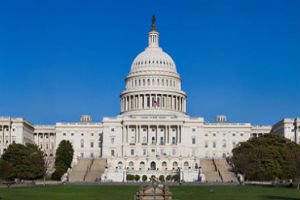A measure to make dozens of tax extenders permanent, including three charitable giving incentives, was approved by the House of Representatives on Thursday. The House followed that up this morning by approving a $1.1-trillion year-end spending bill that will fund the federal government through September.
The Protecting Americans from Tax Hikes (PATH) Act of 2015 passed the House on Thursday by a vote of 318-109 and the spending bill was approved by a 316-113 margin this morning. The Senate then voted 65-33 on a bill that included the tax extenders.
Leaders of the House Ways and Means Committee and Senate Finance Committee announced the bipartisan deal late Tuesday night. President Barack Obama is expected to sign the legislation. The incentives, which expired Dec. 31, 2014, will be retroactive to Jan. 1, 2015.
The legislation will make permanent three charitable giving incentives that in recent years have expired annually and been retroactively re-authorized for several years. The incentives include:
- The IRA charitable rollover, allowing individuals 70 ½ and older to donate up to $100,000 form their Individual Retirement Accounts (IRA) directly to charities;
- Increasing the cap on giving through a food donation tax deduction, allowing small businesses that donate excess food to take the same enhanced tax deduction that C corporations do; and,
- An enhanced tax deduction for donations of conservation easements.
The measure does not include simplifying the private foundation excise tax to a flat 1 percent, advocated by some leaders in the charitable sector. Independent Sector expressed disappointment about a provision in the omnibus spending bill that would prohibit the Internal Revenue Service (IRS) from clarifying the rules governing political activity by exempt organizations. The IRS has been working for several years to revise proposed regulations that govern political activity of 501(c)(4) social welfare organizations. The joint effort with the Department of Treasury was sparked more than two years ago to reduce uncertainty about what organizations can and cannot do when it comes to political activity.










